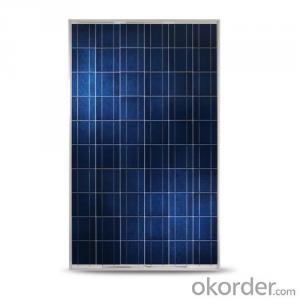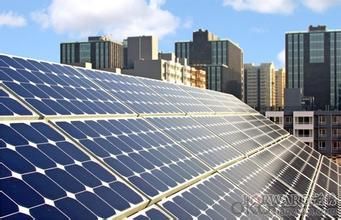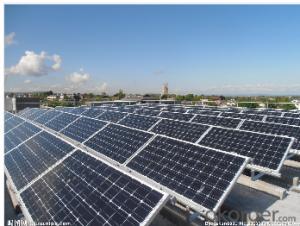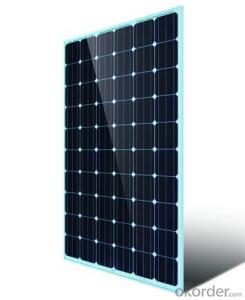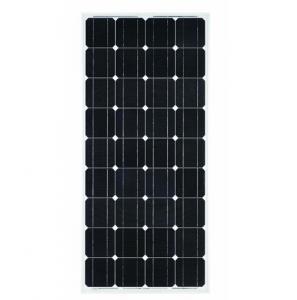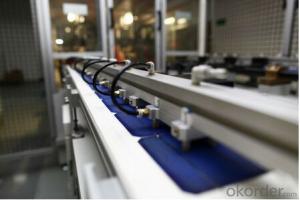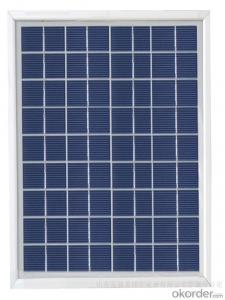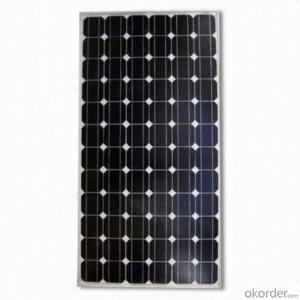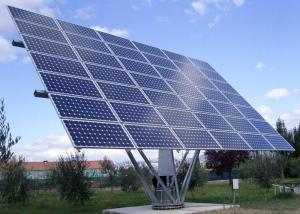White House Solar Panels:240w/245w Solar Panel with TUV IEC MCS CEC IDCOL SONCAP Certificates
- Loading Port:
- Shanghai
- Payment Terms:
- TT OR LC
- Min Order Qty:
- 1000 watt
- Supply Capability:
- 100000000 watt/month
OKorder Service Pledge
OKorder Financial Service
You Might Also Like
- TUV IEC, MCS (UK), CE, CEC (Australia), INMETRO, IDCOL, SONCAP CERTIFIED
- [EU ANTIDUMPING DUTY-FREE]
- PROFESSIONAL SOLAR PANEL MANUFACTURER SINCE 2004
FEATURES
`Long Service Life
`High Efficency Solar Cells
`Special Aluminum Frame Design
`High Transmission,Low Iron Tempered Glass - TUV IEC, MCS (UK), CE, CEC (Australia), INMETRO, IDCOL, SONCAP CERTIFIED
- [EU ANTIDUMPING DUTY-FREE]
- PROFESSIONAL SOLAR PANEL MANUFACTURER SINCE 2004
FEATURES
`Long Service Life
`High Efficency Solar Cells
`Special Aluminum Frame Design
`High Transmission,Low Iron Tempered Glass
`Advanced Cell Encapsulation
APPLICATIONS
`Solar power stations
`Rural electrification, Small home power systems
`Power supply for traffic, security, gas industry
`12V and 24V battery charging system
`Other industrial and commercial applications
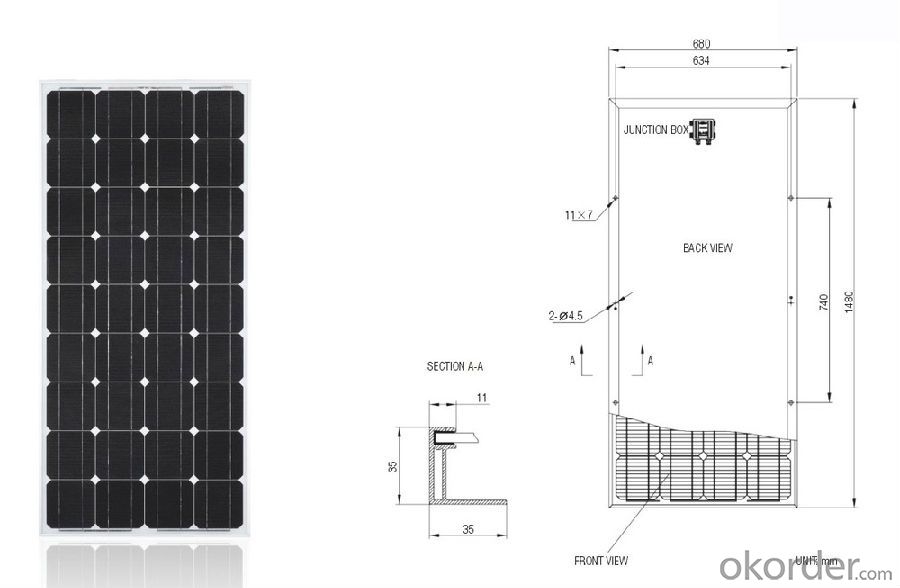
| ELECTRICAL CHARACTERISTICS | |||||||
| Model Number | KM(P)230 | KM(P)235 | KM(P)240 | KM(P)245 | KM(P)250 | ||
| Maximum Power as per STC | Pmax(W) | 230 | 235 | 240 | 245 | 250 | |
| Power Tolerance | % | ±3% | |||||
| Maximum Power Voltage | Vm(V) | 30.48 | 30.6 | 30.66 | 30.98 | 31.29 | |
| Maximum Power Current | Im(A) | 7.6 | 7.68 | 7.83 | 7.91 | 7.99 | |
| Open Circuit Voltage | Voc(V) | 36.6 | 36.72 | 36.84 | 37.38 | 37.5 | |
| Short Circuit Current | Isc(A) | 8.17 | 8.23 | 8.32 | 8.42 | 8.5 | |
| Maximum System Voltage | VDC | 1000 | |||||
| Cell Efficiency | % | 15.8 | 16.1 | 16.4 | 16.8 | 17.1 | |
| Module Efficiency | % | 14.1 | 14.4 | 14.7 | 15.0 | 15.3 | |
| Cells per Module | Pcs | 60 | |||||
| Cell Type | Polycrystalline silicon | ||||||
| Cell Size | mm | 156 x 156 | |||||
| Bypass Diodes | Pcs | 12Amp, 6 pcs | |||||
| Max. Series Fuse Rating | A | 15A | |||||
| Temperature coefficient of Isc | %/°C | 0.05 | |||||
| Temperature coefficient of Voc | %/°C | -0.35 | |||||
| Temperature coefficient of power | %/°C | -0.47 | |||||
| NOCT- Nominal operating cell temperature | °C | 47 ± 2 | |||||
| Operating Temperature | °C | -40 ~ +85 | |||||
| MECHANICAL CHARACTERISTICS | |||||||
| Dimensions | mm | 1650 x 990 x 50 | |||||
| Weight | Kg | 19.8 | |||||
| Type of Junction Box | TUV certified, IP65 | ||||||
| Cable Type, Diameter | TUV certified, 4mm2, 90 cm in length | ||||||
| Connector | compatible to Type 4 (MC4) | ||||||
| Tempered Glass | 3.2 mm, high transmission, low iron | ||||||
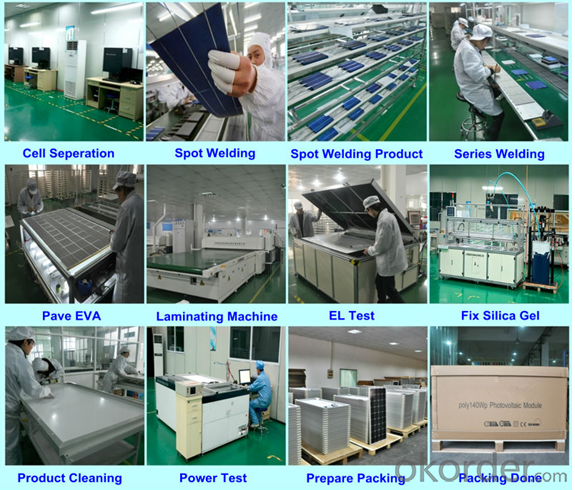 Packing
Packing
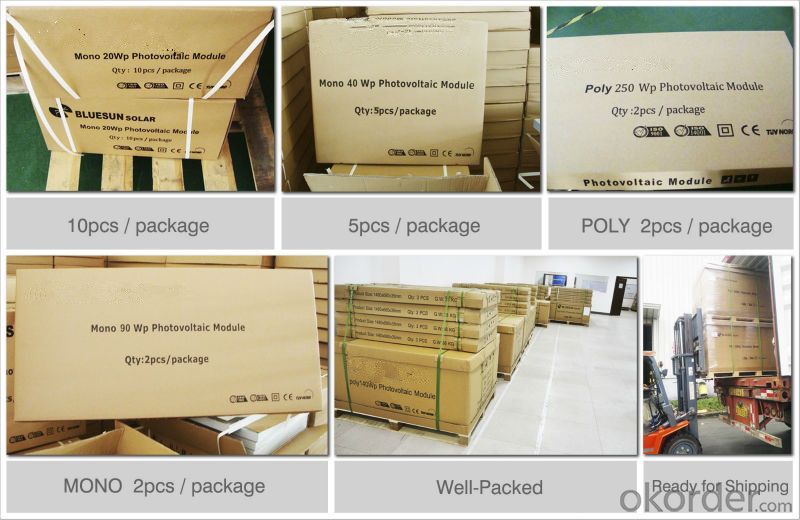
FAQ
1. What kind of Solar Cells does it have
---poly crystalline 156*156mm and 125*125mm or mono 125*125mm and 156*156mm
2. Is the front panel Glass or Plastic
---Tempered glass 3.2mm thickness or adjust to what you need, Light transmittance up to 95%.
3. Does it meet Europe Standards for Solar Energy
---This is TUV approval products, all the producing procedure apply TUV&UL.
4. What is the Efficiency level
--- Between 16-18.9% for solar cells.
5. What is the Nominal Voltage
--- 18v 20v 24v 36v 30v 48v , and so on, we can adjust to what you need.
6. What is the Warranty Period, How many years?
Power efficiency warranty:
---90% in 10 years; 80% in 25 years.
- Q: Are solar panels safe?
- Yes, solar panels are safe. They are designed and installed to meet strict safety standards. They do not produce any emissions, and the risks associated with solar panels are extremely low. However, it is important to ensure proper installation and maintenance to maximize safety.
- Q: What is the main material for making solar panels?
- If you make your own, in addition to buying silicon also need to buy for the packaging of silicon photovoltaic glass and EVA film.
- Q: What is the environmental impact of solar panels?
- Solar panels have a positive environmental impact as they generate clean and renewable energy. They reduce greenhouse gas emissions, air pollution, and dependence on fossil fuels, mitigating climate change and improving air quality. However, their production and disposal do have some environmental impact, including resource extraction and waste management, but these impacts are significantly lower compared to conventional energy sources.
- Q: This is the cenario. Your yearly energy use comes by mail and it states that the total amount of energy used your household is 7000kWh.Then you make the decision of switching to get solar panels. The question is what area should your solar panel be given that the average annual length of daylight is 2.0.
- It is not that simple. There are 3 main types of solar cells. Monocrystalline silicon is the most efficient and produces the smallest solar cells, and therefore the smallest panels. Poly-crystalline (or multi-crystalline) silicon produces the next most efficient type of cells and are a popular choice. Amorphous (or thin-film) silicon uses the least amount of silicon and also produces the least efficient solar cells. This means thin film system take up more area than the other two; an important factor to consider in relation to possible future upgrades; i.e. if you'll have enough space left to do so. The North (in the Southern hemisphere) or South (in the Northern hemisphere) facing roof collects the most energy. So this biases the roof area required. Your energy usage can be changed. Hot water (a major energy user) could be better using direct solar heating with peak demand boosting, either from mains or solar. There are other possibilities, either to reduce demand or to provide energy from other sources. Not all sunshine hours are equal. Hours around midday are far more productive than hours later in the day. This must be factored in.
- Q: i attached a usb charger to my solar panel(it has an output of about .2 volts) but i read on my multimeter its only using about 8 volts however on the conventional wall charger that i use to charge it has an output of about 5. volts.... i believe that my mp3 player is not charging it does not display the charging icon when it is on or off ....is this becuase the output is higher ? do i need to install a volt dropping diode to prevent it from putting to much energy at once? (my mp3 charges fine on the wall charger but does not seem to respond to the solar panel so it the circuits are fine....)
- Have okorder . This could undoubtedly assist person!
- Q: Do solar panels require a backup generator?
- No, solar panels do not require a backup generator as they generate electricity directly from sunlight, eliminating the need for external power sources.
- Q: Can solar panels be used in disaster relief efforts?
- Yes, solar panels can be used in disaster relief efforts. They provide a reliable and sustainable source of electricity, allowing for the operation of critical equipment such as lights, phones, and medical devices. Solar panels can be quickly deployed in affected areas and can help reduce the reliance on fossil fuel-based generators, thereby reducing pollution and the need for fuel transportation.
- Q: I have purchased a 2 volt LED lantern from argos, it comes with a built in 6 volt 4ah sealed acid battery. What I wanted to know is would I be able to charge it using my 6 volt solar panel?
- You okorder /... ] But I would suggest you contact . If you email, be prepared to provide more detailed specifications on your 6 volt solar panel and lantern data. You may just have to purchase a RECHARGEABLE 6V 4ah battery from them. Best of wishes.
- Q: By best I mean safest places. If I were to install them on my roof am I risking due to damage from weathering? Such as rain or snow. I don't get very high winds around here, nor any natural disasters such as hurricanes or tornadoes. Does anyone have solar panels that have been durable for a long time? Is it worth the investment?
- Probably not worth it. Sure, it is a great idea, but it will take decades to get your money back in energy savings. Today's panels are fine for a roof. However, I'd worry a little about the interface (where leaks could occur) especially in a retrofit. They, of course, will need to face south.
- Q: Do solar panels require a battery?
- No, solar panels do not require a battery. They generate electricity directly from sunlight and can feed the excess energy back into the grid. However, a battery can be used to store the excess energy for later use when the sun isn't shining.
Send your message to us
White House Solar Panels:240w/245w Solar Panel with TUV IEC MCS CEC IDCOL SONCAP Certificates
- Loading Port:
- Shanghai
- Payment Terms:
- TT OR LC
- Min Order Qty:
- 1000 watt
- Supply Capability:
- 100000000 watt/month
OKorder Service Pledge
OKorder Financial Service
Similar products
Hot products
Hot Searches
